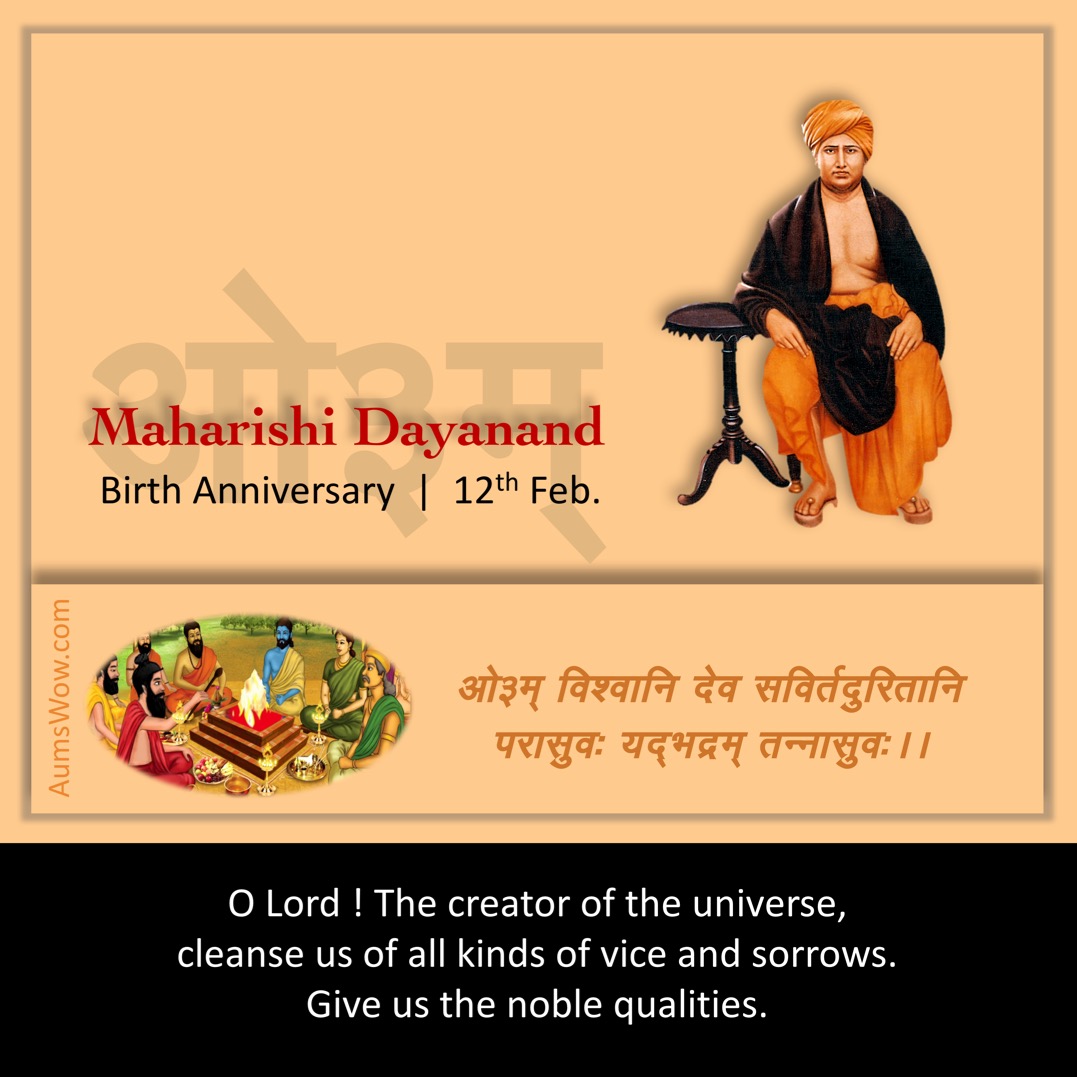| Date : |
| 12th February |
| Related to : |
| Maharishi Dayanand Birth Anniversary |
| Connect Date : |
| 12 February 1824 |
| Connect Place : |
| Tankara, Gujrat, India. |
| Special 1: |
| Dayanand Saraswati (12 February 1824 – 30 October 1883) was an Indian social leader and founder of the Arya Samaj, a reform movement of the Vedic dharma. Denouncing the idolatry and ritualistic worship prevalent
in India at the time, he worked towards reviving Vedic ideologies. Subsequently, the philosopher and President of India, S. Radhakrishnan called him one of the "makers of Modern India", as did Sri Aurobindo. |
| Special 2: |
Those who were influenced by and followed Dayananda included Madam Cama, Pandit Lekh Ram, Swami Shraddhanand, Pandit Guru Dutt Vidyarthi, Shyamji Krishna Varma (who established India House in England for Freedom
fighters,) Vinayak Damodar Savarkar, Lala Hardayal, Madan Lal Dhingra, Ram Prasad Bismil, Mahadev Govind Ranade, Ashfaq Ullah Khan, Mahatma Hansraj, Lala Lajpat Rai, and others. One of his most influential
works is the book Satyarth Prakash, which contributed to the Indian independence movement.
He was a sanyasi (ascetic) from boyhood, and a scholar. He believed in the infallible authority of the Vedas.
Maharshi Dayananda advocated the doctrine of Karma and Reincarnation. He emphasized the Vedic ideals of brahmacharya, including celibacy and devotion to God. |
| More Info : |
Among Maharshi Dayananda's contributions are his promoting of the equal rights for women, such as the right to education and reading of Indian scriptures, and his commentary on the Vedas from Vedic Sanskrit in Sanskrit as
well as in Hindi. His brief introduction is:
- He was a profound scholar of the Vedic knowledge and Sanskrit language.
- He finally emerged as a successful reformer of the Vedic tradition.
- He is well known as the founder of the Arya Samaj, a Hindu reform movement.
- He was the first person to give the call for Swarajya "India for Indians" – in 1876, later taken up by Lokmanya Bal Gangadhar Tilak.
- He strongly denounced the idolatry and ritualistic worship prevalent in Hinduism at the time and worked towards reviving Vedic ideologies.
- One of his most influential works is the book Satyarth Prakash, which contributed to the Indian independence movement.
- He advocated the doctrine of Karma (Karmasiddhanta in Hinduism) and Reincarnation (Punarjanma in Hinduism).
- He was one of the most prominent promoters of the equal rights for women, such as the right to education .
- One of his notable disciples was Shyamji Krishna Varma, who founded India House in London and guided other revolutionaries.
|

